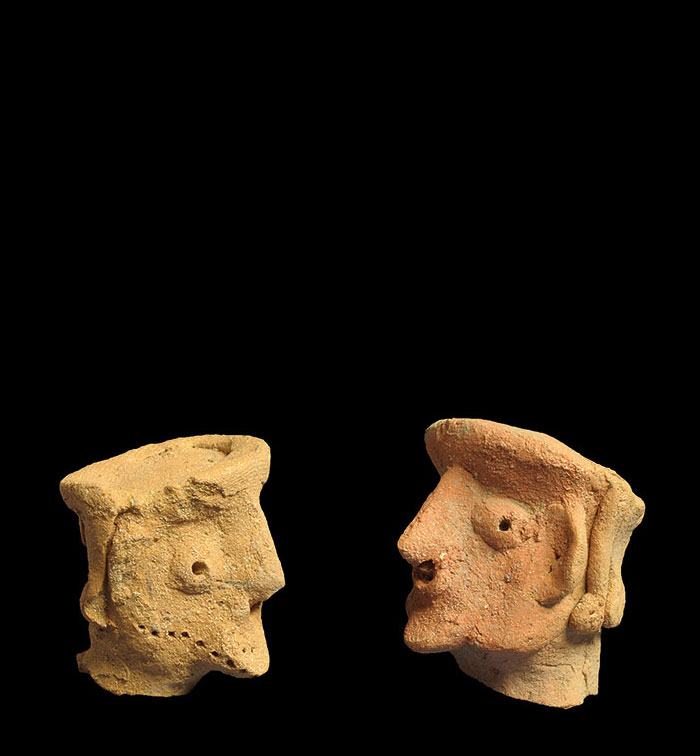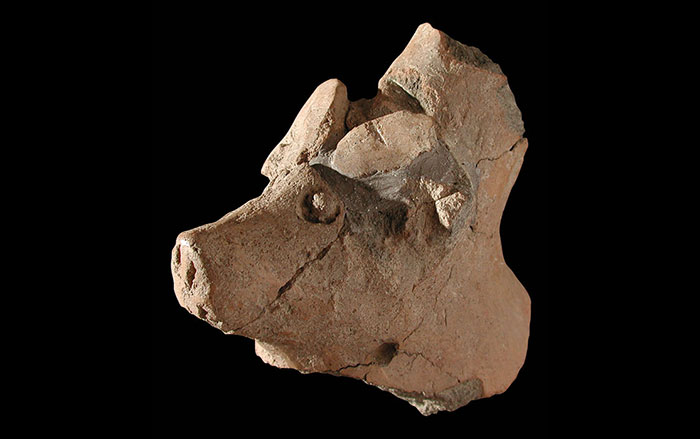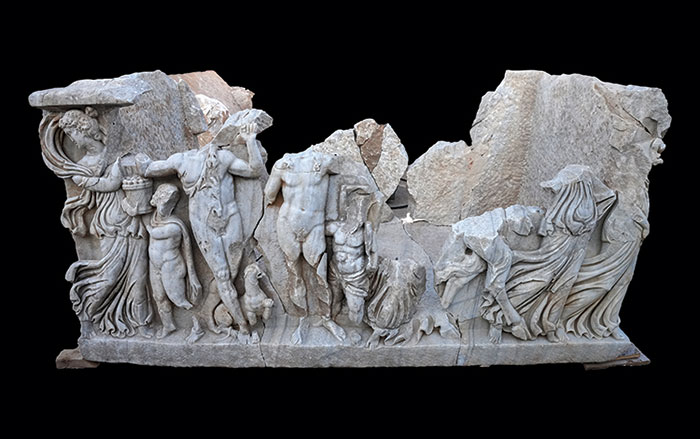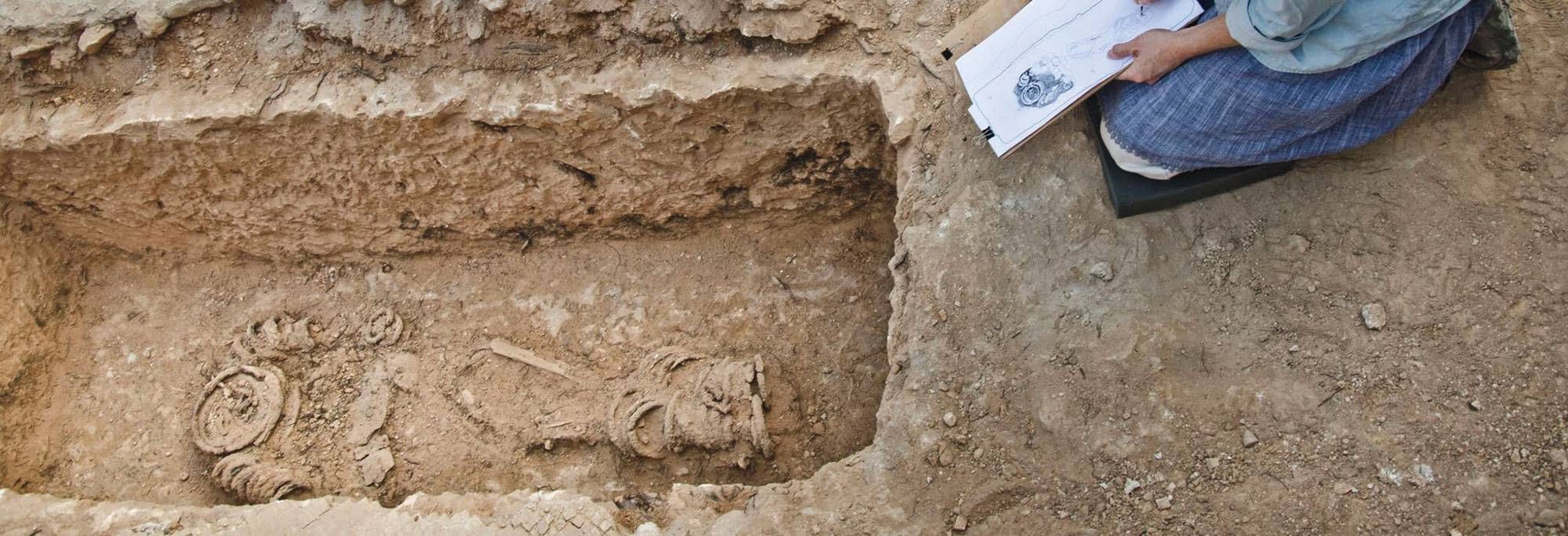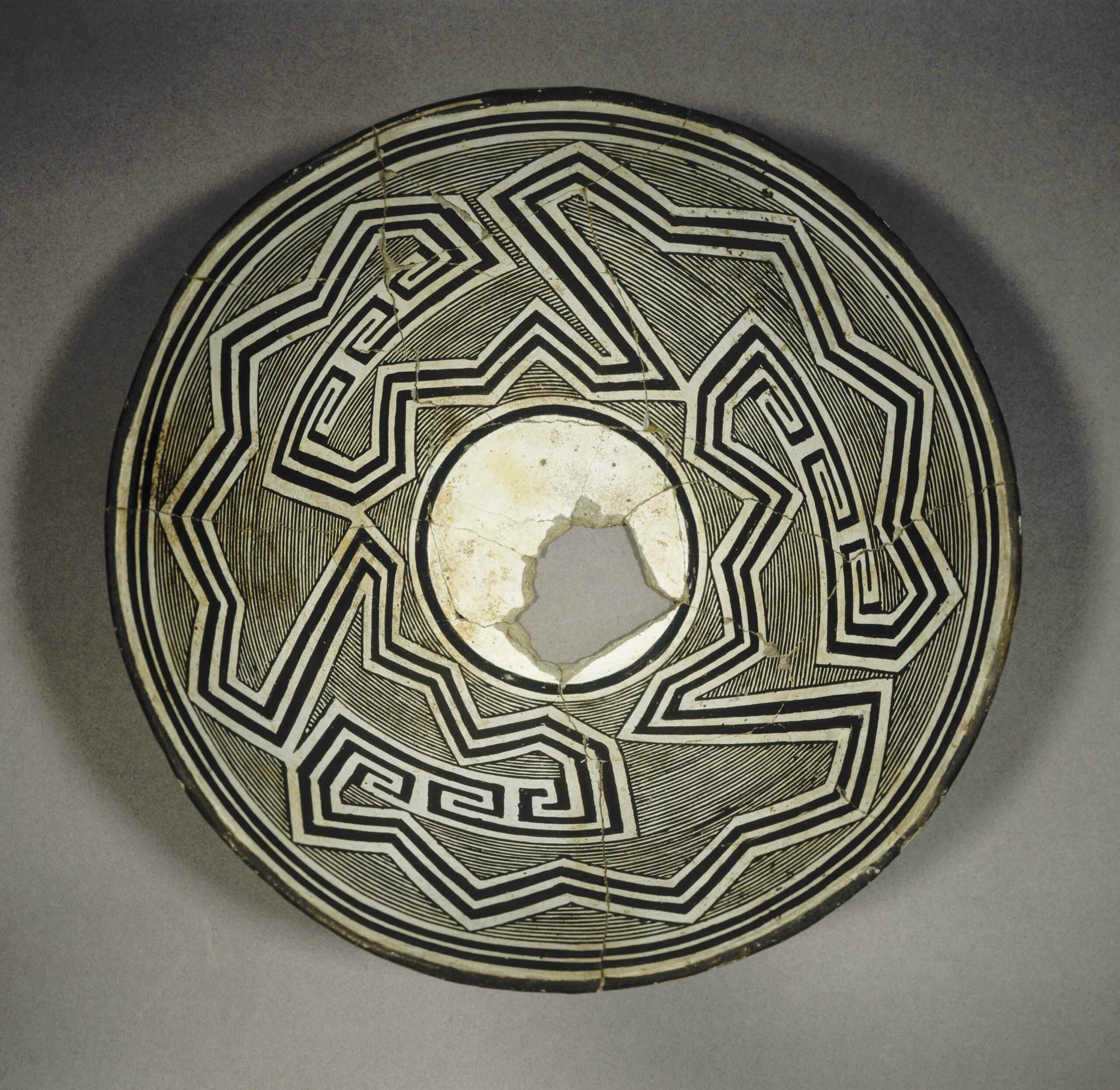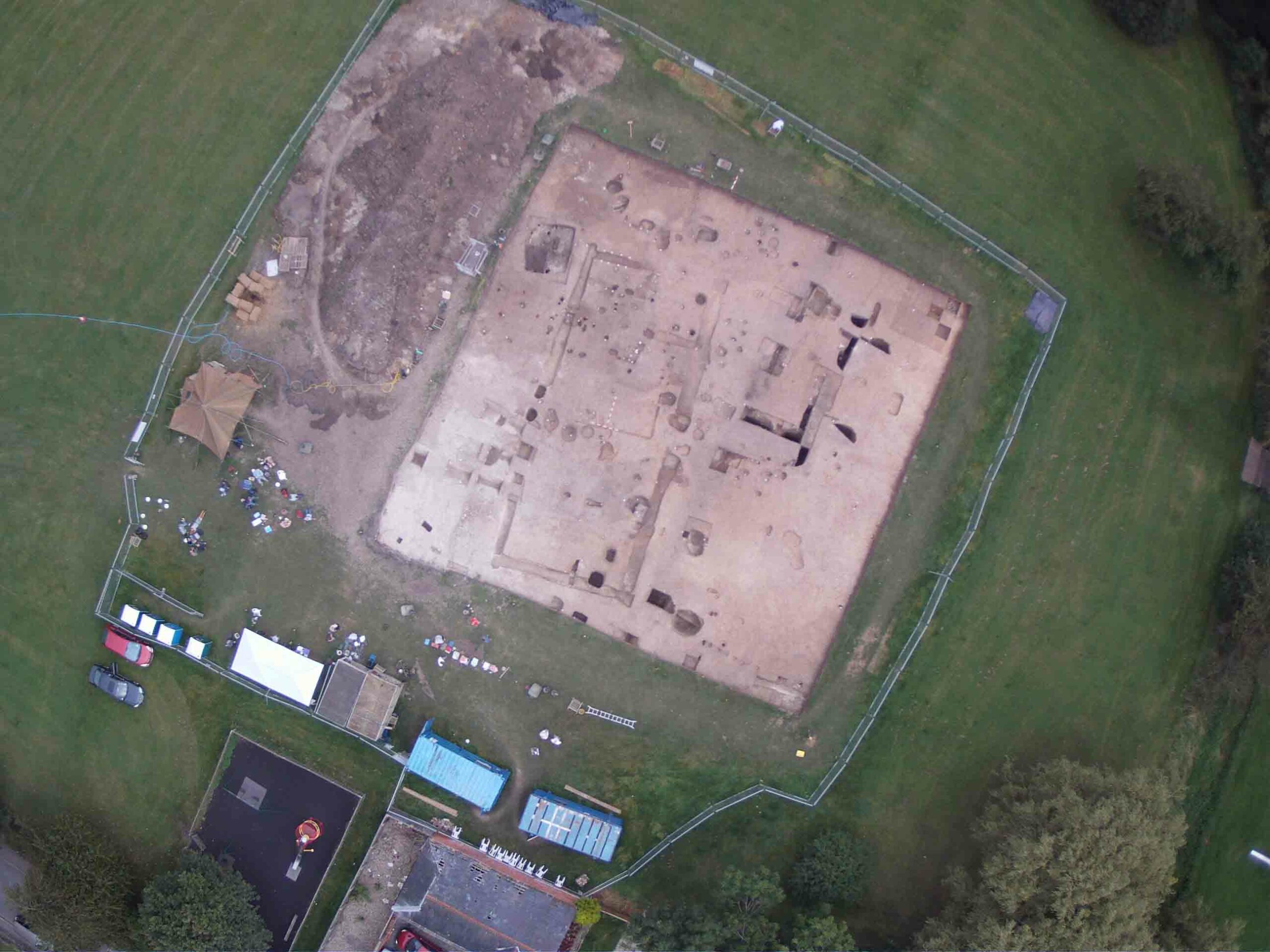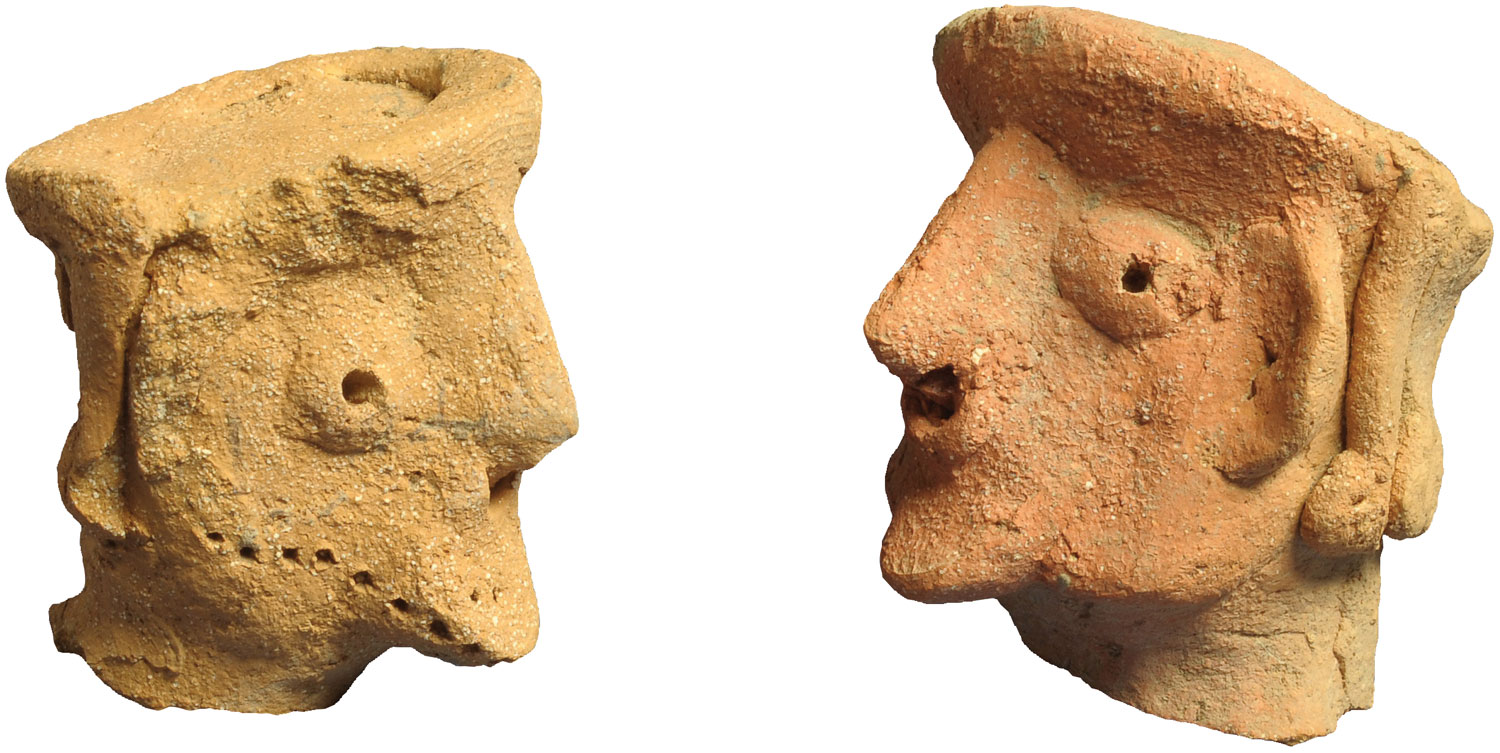
What is it?
Figurines
Material
Pottery
Culture
Ancient Near East
Date
Ca. 9th century B.C.
Dimensions
Shown approximately twice actual size
Found
Tel Motza, 3 miles west of Jerusalem, Israel
Sometimes it is the smallest artifacts that surprise archaeologists the most. Inside the recently uncovered remains of a massive Iron Age building at Tel Motza in Israel, archaeologists from the Israel Antiquities Authority (IAA) uncovered a cache of pottery, and this particular assemblage surprised and intrigued them. The collection included decorated chalices and pedestals, as well as a number of tiny figurines in both animal and human form. These artifacts resembled similar objects found previously that were known to have been used in domestic rituals. But the structure at Tel Motza was clearly much too large to be a house. Instead, they believed, it was actually a temple with an east-facing entrance typical of the ancient Near East, and an altar in the courtyard, next to which they found the pottery cache. According to the IAA archaeologists, the discovery of the temple itself was striking. “There are hardly any remains of ritual buildings in Judea from this period,” they said. But the discovery of the sacred objects inside the temple was especially surprising because there is scant evidence for ritual practices, particularly so close to Jerusalem, at this time. At some point during the later Iron Age, ritual sites outside of Jerusalem were abolished and religious practices were concentrated solely at the temple in the capital city.



